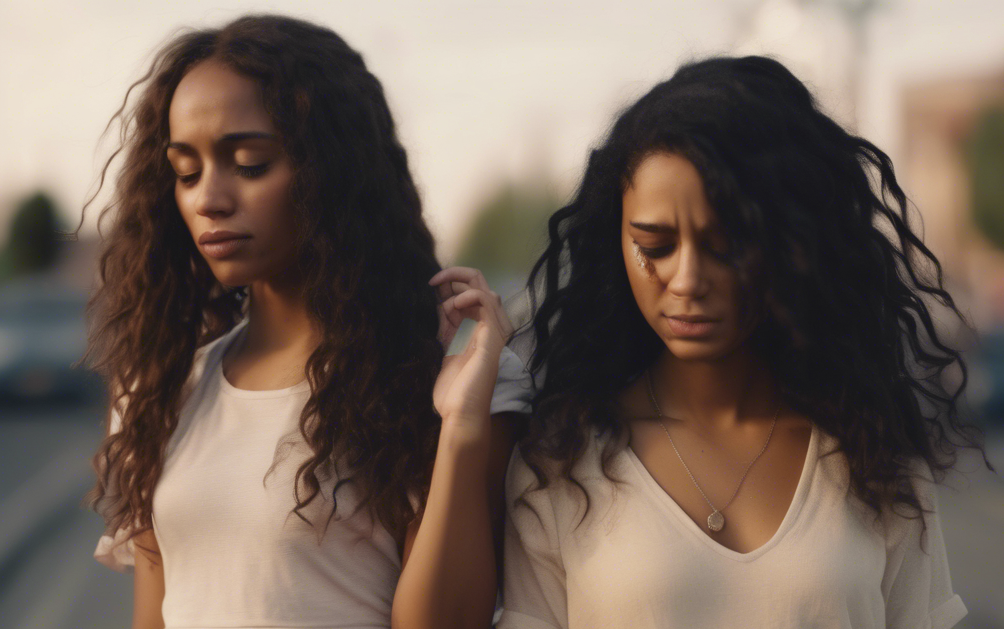Written by Black.By.Nature for The Blue Cafe Magazine
Nobody teaches you how to grieve a friend who’s still alive.
When we talk about breakups, the spotlight almost always falls on romantic relationships. But what about the friend you’ve known since double-dutch and snack-time? The one who knew your middle school crush, your college dreams, and your deepest fears before you ever spoke them aloud? Breaking up with a childhood best friend feels like ripping pages out of your own diary—pages you’ll never get back.
It’s hard because there’s no guidebook for this. No dramatic sendoff. No sad playlist on repeat. Just quiet distance, old inside jokes that no longer hit, and the ache of watching someone live life without you like you never mattered. And the hardest part? You don’t always get to say goodbye. Sometimes closure doesn’t come in a conversation—it comes in your decision to stop reopening wounds that won't heal.
Losing a girl best friend is especially painful because they were more than “just a friend.” They were family. Your mirror. Your human diary. And when that bond ends—especially without warning or explanation—it shakes your trust in everything that once felt secure. You question what went wrong, what could’ve been said, what could’ve been fixed. But sometimes people grow apart. Sometimes love isn’t lost, it’s just not enough to survive the distance that growth creates.
So how do you heal?
You grieve. Fully. Without shame. You cry when you need to. You write the unsent messages. You replay the memories and let them sting. And then slowly, you let them settle. You remind yourself that grief doesn’t mean failure. It means it mattered. You get honest about what that friendship gave you—and what it eventually took away.
Then you rebuild. You invest in new connections, but more importantly, you invest in you. You become your own safe space. You forgive her—even if she never says sorry. And you forgive yourself for outgrowing a love you thought would last forever.
Because some people are chapters, not the whole book. And that’s okay.
Closure doesn’t always come face to face. Sometimes, it comes when you finally stop looking back and start honoring the version of you that needed to let go.
